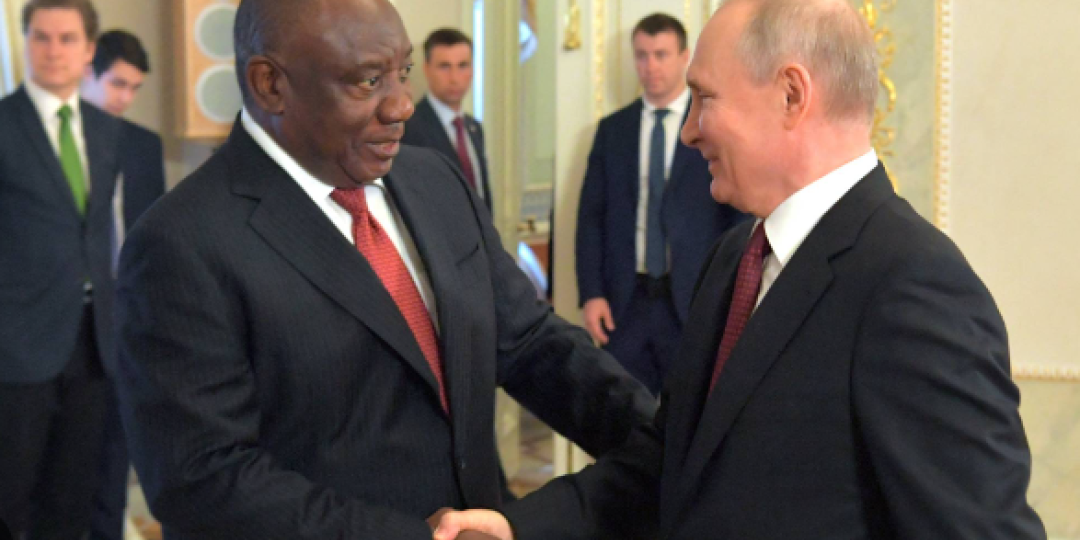President Cyril Ramaphosa has reiterated his call for an end to Russia’s war on Ukraine by “negotiation” and “diplomatic means” after his return from a historic peace mission to promote peace in the region.
The mission comprised the presidents of Senegal, Comoros, Zambia and South Africa, together with the prime minister of Egypt and envoys from the Republic of Congo and Uganda.
The delegation met with Ukrainian President Volodymyr Zelenskyy in Kyiv on Friday, and with Russian President Vladimir Putin in St Petersburg on Saturday.
However, on Sunday fighting intensified in the region, with media reports indicating that Ukrainian troops had recaptured the village, Piatykhaty, in the west of the Zaporizhia region, and Russian troops were trying to counterattack with shelling.
In his newsletter on Monday, Ramaphosa highlighted the leaders’ ten-point proposal that was submitted to the warring countries in which he issued a fresh call for an end to the conflict.
“We presented a ten-point proposal that we, as African leaders, believe can contribute to various efforts that have been made by various parties to bring the conflict to an end,” Ramaphosa said.
“Included in the proposal being put forward as part of the African Peace Initiative are calls for a de-escalation of fighting and for negotiations to commence with urgency; for the release of prisoners of war and return of children; for greater humanitarian support; and for reconstruction efforts to be prioritised,” Ramaphosa wrote.
Another point of the proposal is for the opening up of the movement of cargo across the Black Sea so grains from Russia and Ukraine can reach world markets.
“We affirmed that countries' sovereignty should be respected in line with the principles of the United Nations Charter. We highlighted the urgent need that the security of both nations should be guaranteed.”
He said one of the key achievements of the peace mission was “the positive reception we received from both sides, which we found encouraging and which provides cause for optimism that the proposals will be given consideration”.
“As African leaders, our primary concern is for the lives of the people directly affected by the conflict. We believe that everything should be done to end the fighting to prevent further loss of life, injury, displacement and destruction. As the international community we need to work together to prevent any further suffering,” Ramaphosa said.
He added that there was a misconception that the conflict was far removed from the realities of South Africa.
“The conflict between Russia and Ukraine is having a very real effect on African countries and economies. We made the point to the Ukrainian and Russian presidents that while we undertook this mission as members of the international community committed to peacebuilding, we as the African continent also have a material interest in seeing a resolution to the conflict,” Ramaphosa said.
Russia and Ukraine are major suppliers of grains and producers of fertiliser exported to Africa.
According to the African Development Bank, the war has “triggered a shortage of about 30 million tonnes of grain on the African continent, along with a sharp increase in cost”.
“As a result of this conflict, African countries are negatively affected by the rising costs of food and energy. Supply chain disruptions have caused a shortage of farming inputs such as fertilisers, threatening the food security of a number of African countries,” Ramaphosa said.
“This initiative has been historic in that it is the first time African leaders have embarked on a peace mission beyond the continent's shores. Although the delegation comprised countries that have taken diverse positions on the various UN resolutions on the conflict, the countries represented have all taken a non-aligned stance on this issue.”
He said the non-alignment of the mission had given it credibility and engendered trust from both sides.
“Both Presidents Zelensky and Putin agreed to further engagements following this initial visit.
“As engagements with both parties and African leaders continue, it is our hope that as the process moves forward, a foundation can be set for a de-escalation of the conflict and negotiation,” Ramaphosa said.













